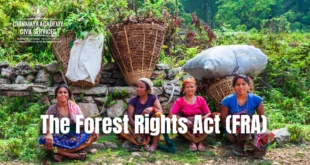- Tamil author M. Rajendran, Telugu writer Madhuranthakam Narendra and Sanskrit poet Janardan Prasad Pandey ‘Mani’ are among the 23 authors who won the Sahitya Akademi awards for 2022 announced on Thursday.
- Anuradha Roy has been selected for her English novel All the lives we never lived.
- The Bhasha Samman will be given to Udaya Nath Jha for his contribution to the field of classical and medieval literature in the eastern region. Seventeen books have been selected for the translation awards which included Yaad Vashem by N. Nallathambi and AkupachaKavithalu by Varala Anand.
- The selections in 23 languages include seven books of poetry, six novels, two collections of short stories, three dramas, two literary criticism works and one each of autobiographical essays, collection of articles and literary history. The awards, recommended by jury members, were approved by the Executive Board of the Sahitya Akademi, which met on Thursday.
- In Assamese language, Manoj Kumar Goswami won the award for his collection of short stories Bhool Satya. Gulam Mohammad Shaikh won in Gujarati for GherJatan, a collection of autobiographical essays, while Mr. Rajendran won in Tamil for his novel Kala Pani.
Other languages
- Winners in other languages are: Maya Anil Kharangate (Konkani), Praveen DashrathBandekar (Marathi), Mr. Madhuranthakam Narendra (Telugu), Anis Ashfaq (Urdu), Veena Gupta (Dogri), Kamal Ranga (Rajasthani), K.B. Nepali (Nepali), Farooq Fayaz (Kashmiri) and Rashmi Choudhury (Bodo).
- Thomas Mathew won the award in Malayalam for his work on literary criticism, AshaanteSeethayanam, while MudnakuduChinnaswamy won in Kannada for a collection of articles, BahutvadaBhaaratamattuBouddhaTaatvikate. The award for Bengali works will be announced later.
- The Sahitya Akademi ‘YuvaPuraskar’ was awarded to Pawan Nalat for his Marathi poetry collection Mi SandarbhaPokharatoy. The Bal Sahitya Puraskar has been given to Ganesh Marandi for his Santali book Hapan Mai. The books were selected based on the recommendations by a three-member jury in each of the languages.
Need taxonomy, definitions to avoid ‘greenwashing’
- Reserve Bank Deputy Governor M. Rajeshwar Rao on Thursday called for a taxonomy on green finance to avoid the risk of “greenwashing”. Green financing refers to lending to environmentally sustainable economic activities.
- Speaking at an event here, Mr. Rao said a formal definition of green finance along with a taxonomy “is the need of hour” and added that it will enable more precise tracking of finance flows to green sectors.
- “A taxonomy would help banks and financial institutions in better assessing the climate risk in their loan portfolio, scaling up… sustainable finance and mitigating the risk of greenwashing,” he said.
- The call for clear definitions and a classification system, establishing a list of environmentally sustainable economic activities, comes at a time when India is looking at increasing green finance to help the climate. Greenwashing refers to dishonest practices aimed at duping people.
- Rao also said that green infrastructure investment trusts could help scale up green finance, given the need to rapidly scale up finance because of the country’s climate commitments.
- “There is a need for regulated entities to develop and implement comprehensive frameworks for understanding and assessing the potential impact of climate-related financial risks in their business strategy and operations,” the senior RBI official added.
SOURCE: THE HINDU, THE ECONOMIC TIMES, PIB
 Chinmaya IAS Academy – Current Affairs Chinmaya IAS Academy – Current Affairs
Chinmaya IAS Academy – Current Affairs Chinmaya IAS Academy – Current Affairs



